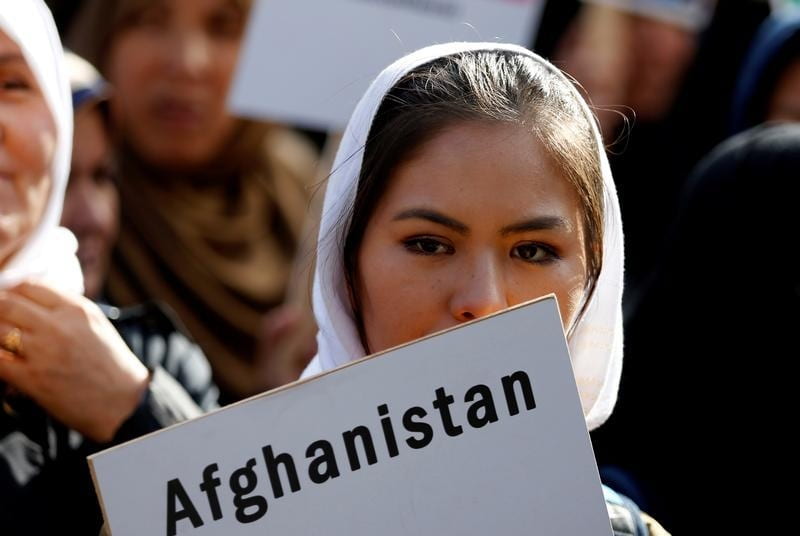Griefbots are an emerging technological phenomenon designed to mimic deceased individuals’ speech, behaviors, and even personalities. These digital entities are often powered by artificial intelligence, trained on data such as text messages, social media posts, and recorded conversations of the deceased. The concept of griefbots gained traction in the popular imagination through portrayals in television and film, such as the episode “Be Right Back” from the TV series Black Mirror. As advancements in AI continue to accelerate, griefbots have shifted from speculative fiction to a budding reality, raising profound ethical and human rights questions.
Griefbots are marketed as tools to comfort the grieving, offering an opportunity to maintain a sense of connection with lost loved ones. However, their implementation brings complex challenges that transcend technology and delve into the realms of morality, autonomy, and exploitation. While the intentions behind griefbots might seem compassionate, their broader implications require careful consideration. With the rising intricacy of the morality of AI, I want to explore some of the ethical aspects of griefbots and ask questions to push the conversation along. My goal is not to strongly advocate for or against their usage but to engage in philosophical debate.

Ethical and Human Rights Ramifications of Grief Bots
Commercial Exploitation of Grief
The commercialization of griefbots raises significant concerns about exploitation. Grieving individuals, in their emotional vulnerability, may be susceptible to expensive services marketed as tools for solace. This commodification of mourning could be seen as taking advantage of grief for profit. Additionally, if griefbots are exploitative, it prompts us to reconsider the ethicality of other death-related industries, such as funeral services and memorialization practices, which also operate within a profit-driven framework.
However, the difference between how companies currently capitalize on griefbots and how the death industry generates profit is easier to tackle than the other implications of this service. Most companies producing and selling griefbots charge for their services through subscriptions or minute-by-minute payments, distinguishing them from other death-related industries. Companies may have financial incentives to keep grieving individuals engaged with their services. To achieve this, algorithms could be designed to optimize interactions, maximizing the time a grieving person spends with the chatbot and ensuring long-term subscriptions. These algorithms might even subtly adjust the bot’s personality to make it more appealing over time, creating a pleasing caricature rather than an accurate reflection of the deceased.
As these interactions become increasingly tailored to highlight what users most liked about their loved ones, the griefbot may unintentionally alter or oversimplify memories of the deceased, fostering emotional dependency. This optimization could transform genuine mourning into a form of addiction. In contrast, if companies opted to charge a one-time activation fee rather than ongoing payments, would this shift the ethical implications? In such a case, could griefbots be equated to services like cremation—a one-time fee for closure—or would the potential for misuse still pose moral concerns?
Posthumous Harm and Dignity
Epicurus, an ancient Greek philosopher, famously argued that death is not harmful to the deceased because, once dead, they no longer exist to experience harm. Griefbots challenge the assumption that deceased individuals are beyond harm. From Epicurus’s perspective, griefbots would not harm the dead, as there is no conscious subject to be wronged. However, the contemporary philosopher Joel Feinberg contests this view by suggesting that posthumous harm is possible when an individual’s reputation, wishes, or legacy are violated. Misrepresentation or misuse of a griefbot could distort a person’s memory or values, altering how loved ones and society remember them. These distortions may result from incomplete or biased data, creating an inaccurate portrayal of the deceased. Such inaccuracies could harm the deceased’s dignity and legacy, raising concerns about how we ethically represent and honor the dead.

Article 1 of the Universal Declaration of Human Rights states, “All human beings are born free and equal in dignity and rights. They are endowed with reason and conscience and should act towards one another in a spirit of brotherhood.” Because griefbots are supposed to represent a deceased person, they have the potential to disrespect people’s dignity by falsifying that person’s reason and consciousness. By creating an artificial version of someone’s reasoning or personality that may not align with their true self, griefbots risk distorting their essence and reducing the person’s memory to a fabrication.
But imagine a case in which an expert programmer develops a chatbot to represent himself. He perfectly understands every line of coding and can predict how the griefbot will honor his legacy. If there is no risk to the harm of his dignity, is there still an ethical issue at hand?
Consent and Autonomy
Various companies allow people to commission an AI ghost before their death by answering a set of questions and uploading their information. If individuals consent to create a griefbot during their lifetime, it might seem to address questions of autonomy. However, consent provided before death cannot account for unforeseen uses or misuse of the technology. How informed can consent truly be when the long-term implications and potential misuse of the technology are not fully understood when consent is given? Someone agreeing to create a griefbot may envision it as a comforting tool for loved ones. Yet, they cannot anticipate future technological advancements that could repurpose their digital likeness in ways they never intended.
This issue also intersects with questions of autonomy after death. While living individuals are afforded the right to make decisions about their posthumous digital presence, their inability to adapt or revoke these decisions as circumstances change raises ethical concerns. In HI-PHI Nation’s Podcast, The Wishes of the Dead, they explore how the wishes of deceased individuals, particularly wealthy ones, continue to shape the world long after their death. The episode uses Milton Hershey, founder of Hershey Chocolate, as a case study. Hershey created a charitable trust to fund a school for orphaned boys and endowed it with his company’s profits. Despite changes in societal norms and the needs of the community, the trust still operates according to Hershey’s original stipulations. Critics questioned whether continuing to operate according to Hershey’s 20th-century ideals was still relevant in the modern era, where gender equality and broader educational access have become more central concerns.
Chatbots do not have the ability to evolve and grow the way that humans do. Barry explains the foundation of this concept by saying, “One problem with executing deeds in perpetuity is that dead people are products of their own times. They don’t change what they want when the world changes.” And even if growth was implemented into the algorithm, there is no guarantee it would be reflective of how a person changes. Griefbots might preserve a deceased person’s digital presence in ways that could become problematic or irrelevant over time. Although griefbots do not have the legal status of an estate or will, they still preserve a person’s legacy in a similar fashion. If Hershey was alive today, would he modify his estate to reflect his legacy?
It could be argued that the difference between Hershey’s case and Chatbots is that wills and estates are designed to execute a person’s final wishes, but they are inherently limited in scope and duration. Griefbots, by contrast, have the potential to persist indefinitely, amplifying the damage to one’s reputation. Does this difference encompass the true scope of the issue at hand, or would it be viable to argue that if chatbots are unethical, then persisting estates would be equally unethical as well?

Impact on Mourning and Healing
Griefbots have the potential to fundamentally alter the mourning process by offering an illusion of continued presence. Traditionally, grieving involves accepting the absence of a loved one, allowing individuals to process their emotions and move toward healing. However, interacting with a griefbot may disrupt or delay this natural progression. By creating a sense of ongoing connection with the deceased, these digital avatars could prevent individuals from fully confronting the reality of the loss, potentially prolonging the pain of bereavement.
At the same time, griefbots could serve as a therapeutic tool for some individuals, providing comfort during difficult times. Grief is a deeply personal experience and for certain people, using chatbots as a means of processing loss might offer a temporary coping mechanism. In some cases, they might help people navigate the early, overwhelming stages of grief by allowing them to “speak” with a version of their loved one, helping them feel less isolated. Given the personal nature of mourning, it is essential to acknowledge that each individual has the right to determine the most effective way for them to manage their grief, including whether or not they choose to use this technology.
However, the decision to engage with griefbots is not always straightforward. It is unclear whether individuals in the throes of grief can make fully autonomous decisions, as emotions can cloud judgment during such a vulnerable time. Grief may impair an individual’s ability to think clearly, and thus, the use of griefbots might not always be a conscious, rational choice but rather one driven by overwhelming emotion.
Nora Freya Lindemann, a doctoral student researching the ethics of AI, proposes that griefbots could be classified as medical devices designed to assist in managing prolonged grief disorder (PGD). PGD is characterized by intense, persistent sorrow and difficulty accepting the death of a loved one. Symptoms of this disorder could potentially be alleviated with the use of griefbots, provided they are carefully regulated. Lindemann suggests that in this context, griefbots would require stringent guidelines to ensure their safety and effectiveness. This would involve rigorous testing to prove that these digital companions are genuinely beneficial and do not cause harm. Moreover, they should only be made available to individuals diagnosed with PGD rather than to anyone newly bereaved to prevent unhealthy attachments and over-reliance.
Despite the potential benefits, the psychological impact of griefbots remains largely unexplored. It is crucial to consider how these technologies affect emotional healing in the long term. While they may offer short-term comfort, the risk remains that they could hinder the natural grieving process, leading individuals to avoid the painful yet necessary work of acceptance and moving forward. As the technology develops, further research will be essential to determine the full implications of griefbots on the grieving process and to ensure that they are used responsibly and effectively.
Conclusion
Griefbots are at the intersection of cutting-edge technology and age-old human concerns about mortality, memory, and ethics. While they hold potential for comfort and connection, their implementation poses significant ethical and human rights challenges. The concepts I explored only scratch the surface of the iceberg. As society navigates this uncharted territory, we must critically examine its implications and find ways to use AI responsibly. The questions it raises are complex, but they offer an opportunity to redefine how we approach death and the digital legacies we leave behind.









